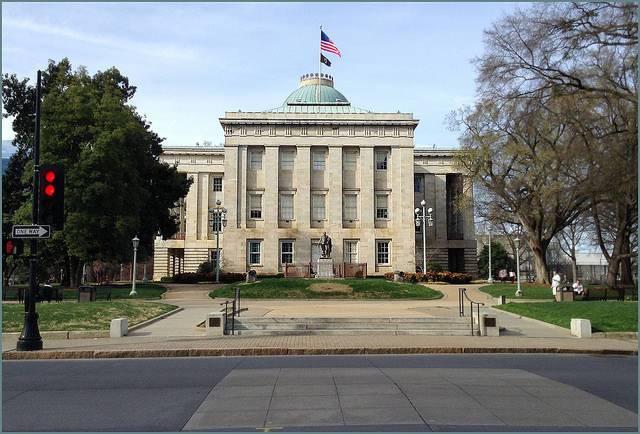
Late last week, as the clock ticked closer to an NCAA deadline to repeal controversial HB-2, known widely as the “bathroom bill,” the North Carolina lawmakers passed legislation that aimed to reverse that law.
The NCAA, which relocated athletic championship events from North Carolina this academic year, has reportedly warned the state that it could lose the right to host any national collegiate athletic events through 2022 if the law was not overturned.
The state’s Republican-dominated legislature and newly-elected Gov. Ray Cooper agreed to HB-142, a compromise legislation, late Wednesday evening. But LGBT activists say the replacement law still leaves to door open to discrimination, and as of press time the NCAA has not responded publicly to the new law.
Forbes writer Debbie Clark was one of many commentators who expressed skepticism over the new law. “The only problem is that the compromise simply won’t work,” she warned in an op-ed.
To some analysts, last year's passage of HB-2 is about far more than who can use which bathroom, and went beyond nixing the safety and human rights of gays, lesbians and transgender citizens.
Writing in The Nation, Jeffrey Tobias described HB-2 as a symptom of the growing backlash from state governments against municipalities that pass ordinances banning discrimination, living wage laws or new environmental protections. Tobias reminded readers that lost in the rage over the bathroom controversy, HB-2 also banned cities and counties from enacting laws related to issues such as child labor or minimum wage increases.
The new bill still leaves North Carolina with no statewide law banning discrimination against LGBT citizens. Local governments are prohibited from passing any related ordinances until December 2020, a month after the state’s next gubernatorial election – rather convenient timing.
The Human Rights Campaign described the new law as “shameful.” And its president, Chad Griffin, described HB-142 as an effort that only “doubled-down on discrimination.” One national newspaper, the Chicago Sun-Times, urged the NCAA to “not be fooled,” and insisted that should the college sports governing body allow national championship events to be held in the Tar Hell State, it would send a signal that “it’s just fine to marginalize LGBTQ folks at least for a few more years.”
Gov. Ray Cooper, whose narrow victory was widely attributed to anger and embarrassment over HB-2, made it clear that the GOP super-majority in the state legislature did not give him much wiggle room. “This new law is a compromise,” he said in a public statement. “But we stopped Republican leaders from adding provisions that permanently placed LGBT rights subject to referendum or allowed people to use religious beliefs to discriminate.”
Cooper claimed the law largely removed most of HB-2’s most punitive actions, eliminated the bathroom restrictions and gives citizens three times as much time to file discrimination complaints than what had been previously allowed by state law. But Cooper’s predecessor, Pat McCrory, agreed with LGBT advocates that the new law was not a full repeal.
The bill became law as the state, despite having one of the fastest growing economies in the U.S., continued to suffer many lost opportunities to boost state coffers, from the hosting of national trade shows to the loss of this year’s NBA All-Star Game. Estimates over the past year largely suggest the state lost hundreds of millions of dollars in potential revenues; a recent Associated Press analysis concluded that the total amount of losses could reach $3.76 billion over the next dozen years.
Image credit: Ron Cogswell/Flickr

Leon Kaye has written for 3p since 2010 and become executive editor in 2018. His previous work includes writing for the Guardian as well as other online and print publications. In addition, he's worked in sales executive roles within technology and financial research companies, as well as for a public relations firm, for which he consulted with one of the globe’s leading sustainability initiatives. Currently living in Central California, he’s traveled to 70-plus countries and has lived and worked in South Korea, the United Arab Emirates and Uruguay.
Leon’s an alum of Fresno State, the University of Maryland, Baltimore County and the University of Southern California's Marshall Business School. He enjoys traveling abroad as well as exploring California’s Central Coast and the Sierra Nevadas.














